Fair Artificial Currency Incentives in Repeated Weighted Congestion Games: Equity vs. Equality
Updated:
Tags: artificial currencies, congestion games, fairness, weighted congestion games
Short abstract
When individuals access shared resources selfishly, the resulting societal and perceived costs often surpass those of a centrally coordinated optimal allocation. While various contributions in mechanism design aim to guide users’ choices towards the desired optimum using monetary tolls, such approaches suffer from the inherent drawback of discriminating against those with lower incomes. More recently, incentive schemes utilizing artificial currencies have been explored to achieve a system-optimal resource allocation that is also fair. This paper delves into the comprehensive notion of fairness by meticulously optimizing for the societal metrics of equity and equality, which respectively encompass providing equal outcomes and equal opportunities.
Source code
A MATLAB implementation of the methods and simulations presented in this paper are openly available in an open-source repository available at github.com/fish-tue/AC-weighted-equity-equality. The code is thoroughly commented and is easy to follow and modify.
The source code can also be downloaded directly here (X MB).
See below for step-by-step instructions on how the illustrative numerical results in [1, Section IV] were obtained from the source code made available.
Simulation Results
Generate Illustrative Example
To generate an illustrative network use the generate_example.m script.
>> generate_example
System opt. flows (x_star): 0.559563 0.390437
System opt. disc. (l_star): 1.23529 2.03529
System opt. cost: 1.48588
Compute Equity and Equality maximizing prices
To compute the arcs’ prices according to the methods proposed in [1, Section III], use the prices.m script.
>> prices
Prices (Equity): p1 = 6.97753 p2 = -10
InEqt (Design for InEqt): 4.44815e-07
InEql (Design for InEqt): 0.256755
InEqt (Design for InEql): 0.20542
InEql (Design for InEql): 0.0688788


Simulate Evolution: Equity
The simulation with the prices designed for equity is carried out by computing the daily Nash equilibrium and the decisions of each user. It can be carried out using the simulation_equity.m script.
>> simulation_equity

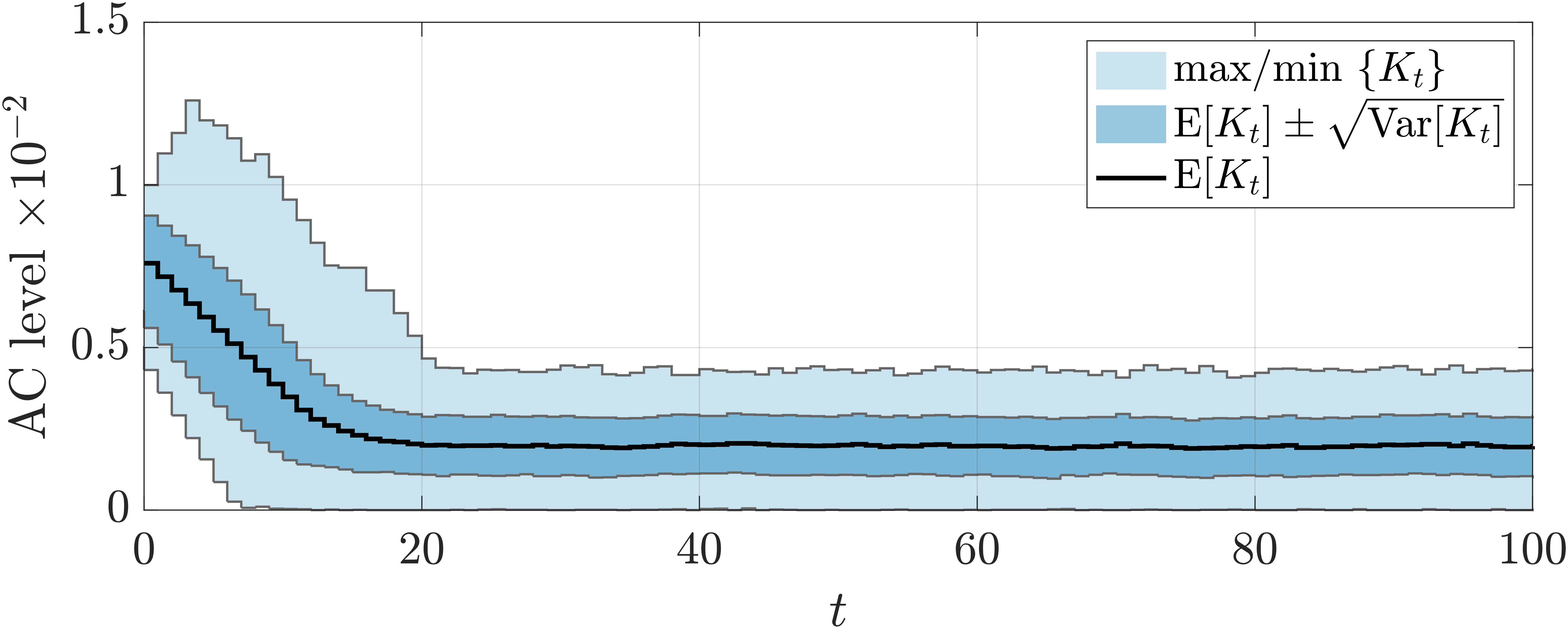
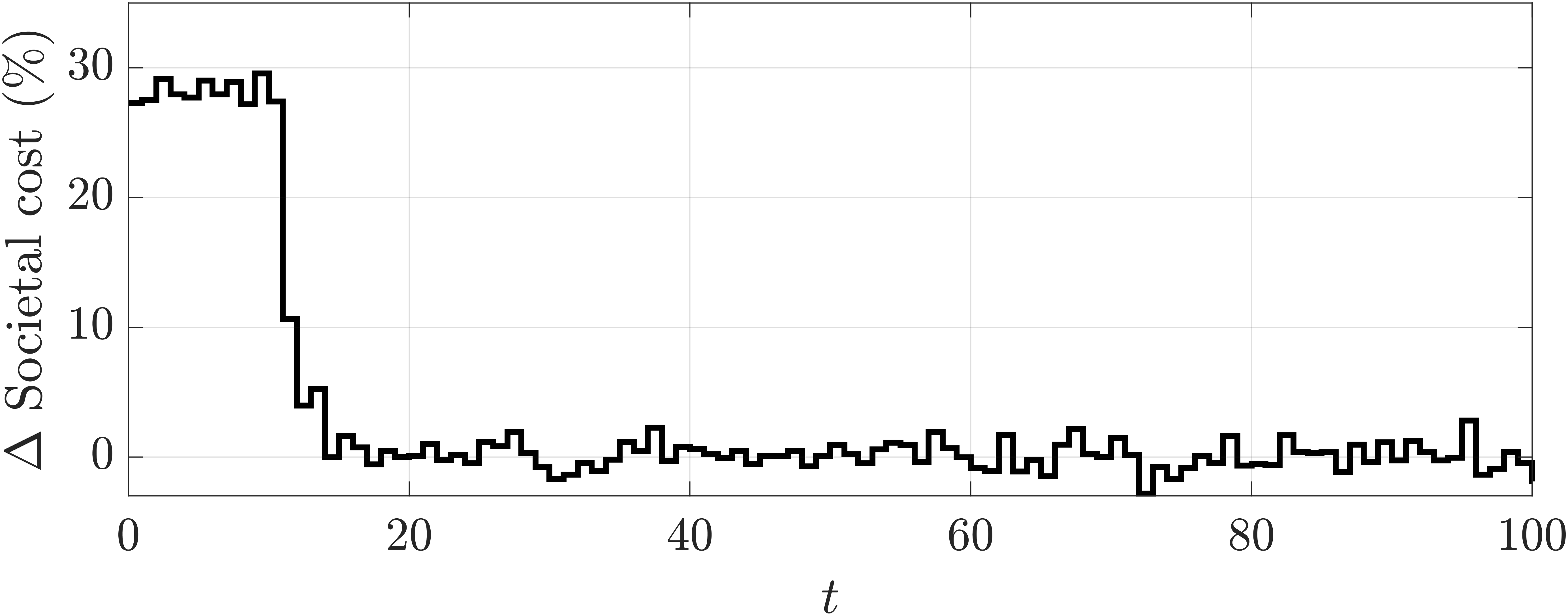


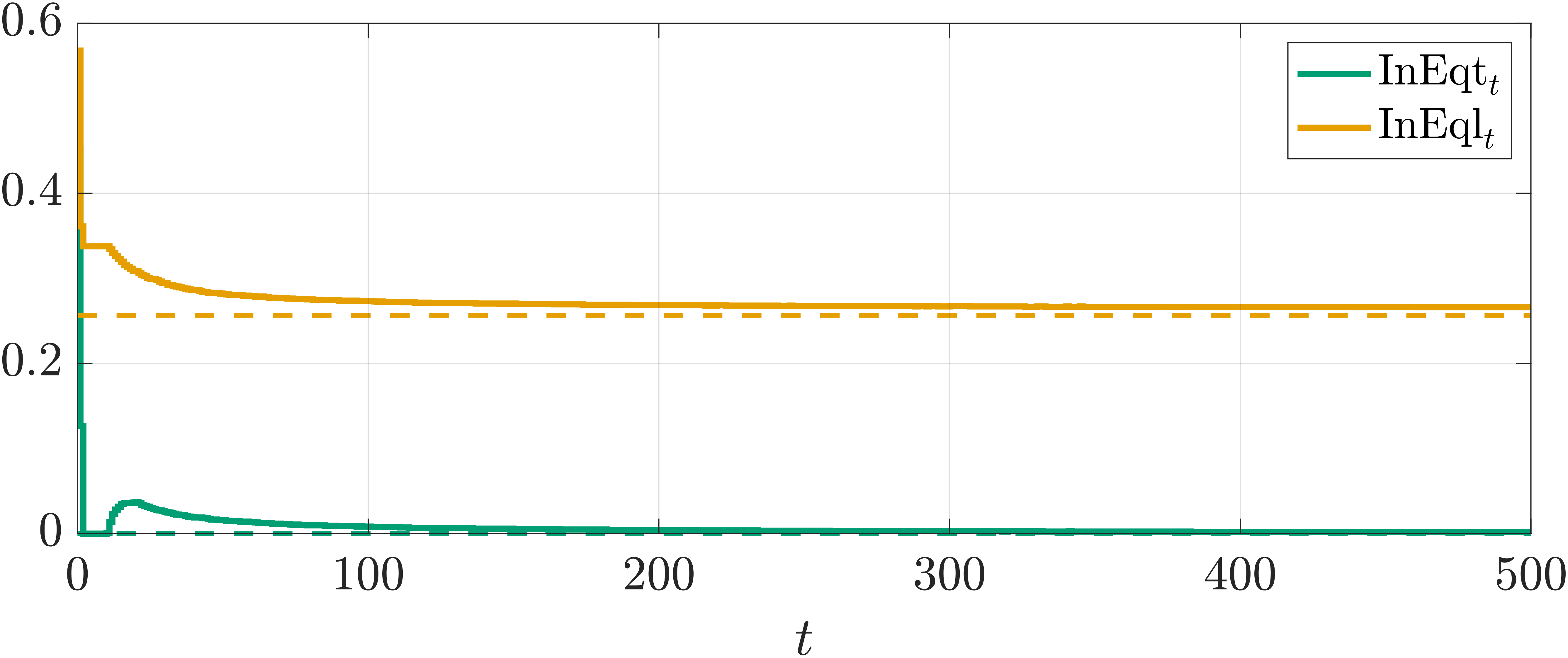
Simulate Evolution: Equality
The simulation with the prices designed for equality is carried out by computing the daily Nash equilibrium and the decisions of each user. It can be carried out using the simulation_equality.m script.
>> simulation_equality
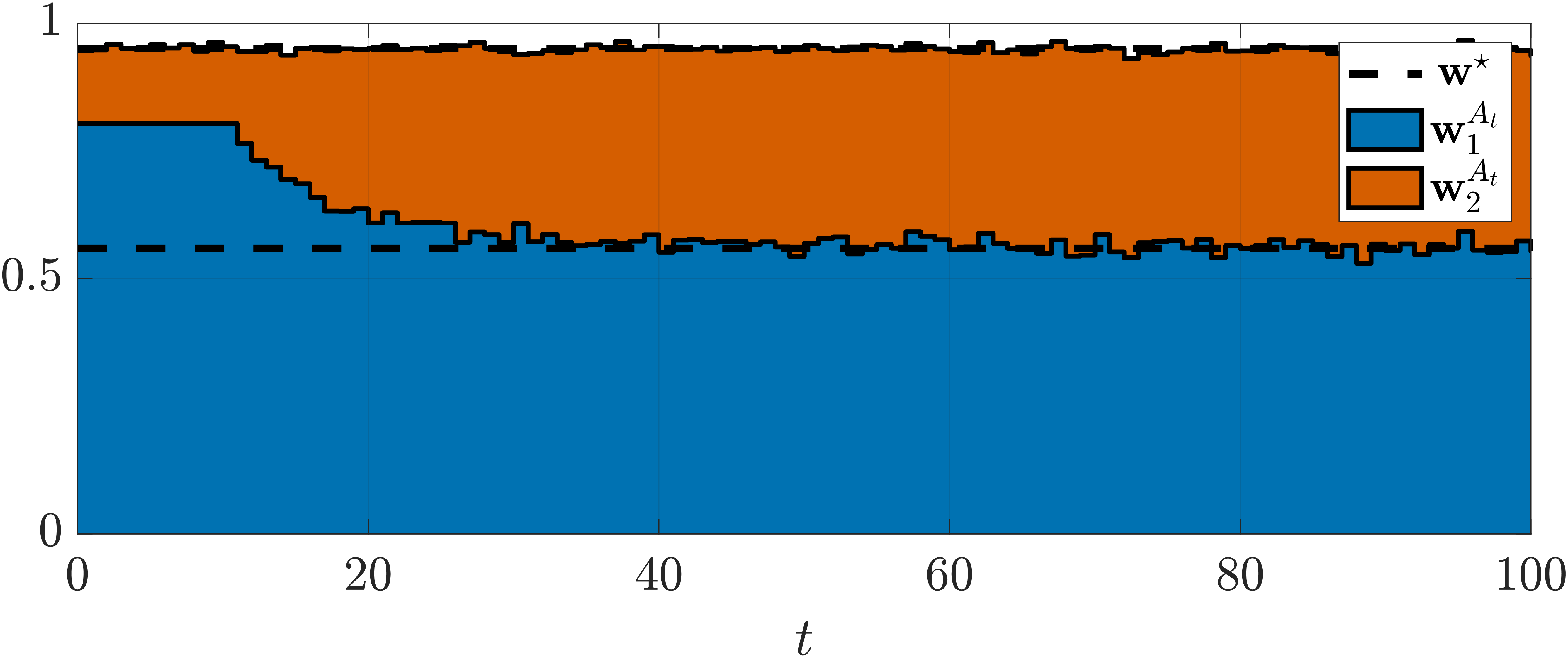
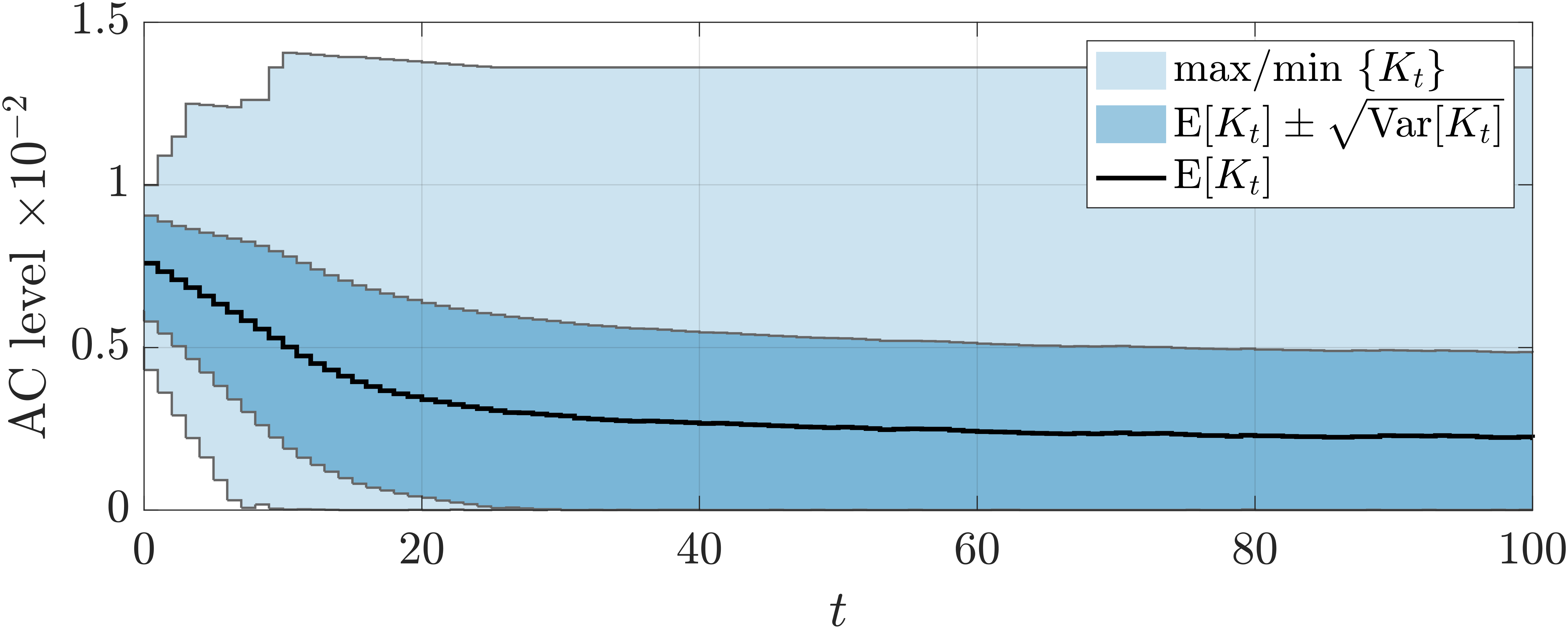
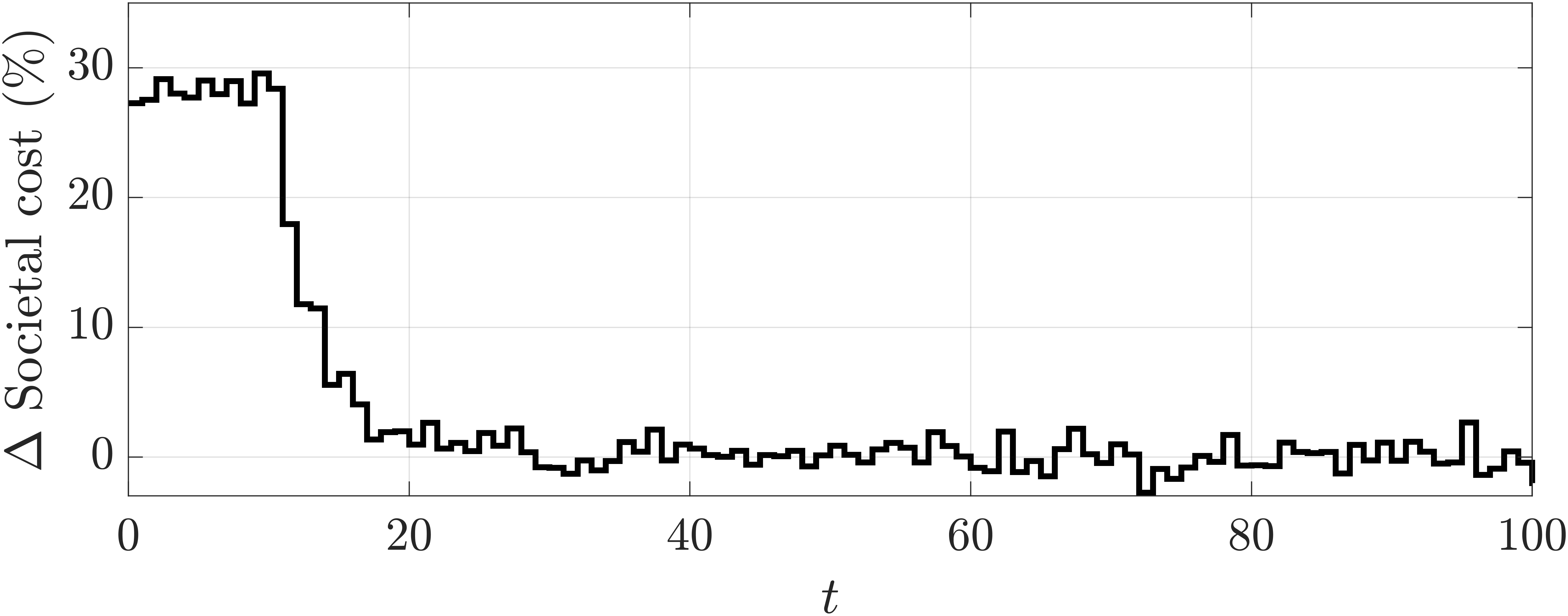
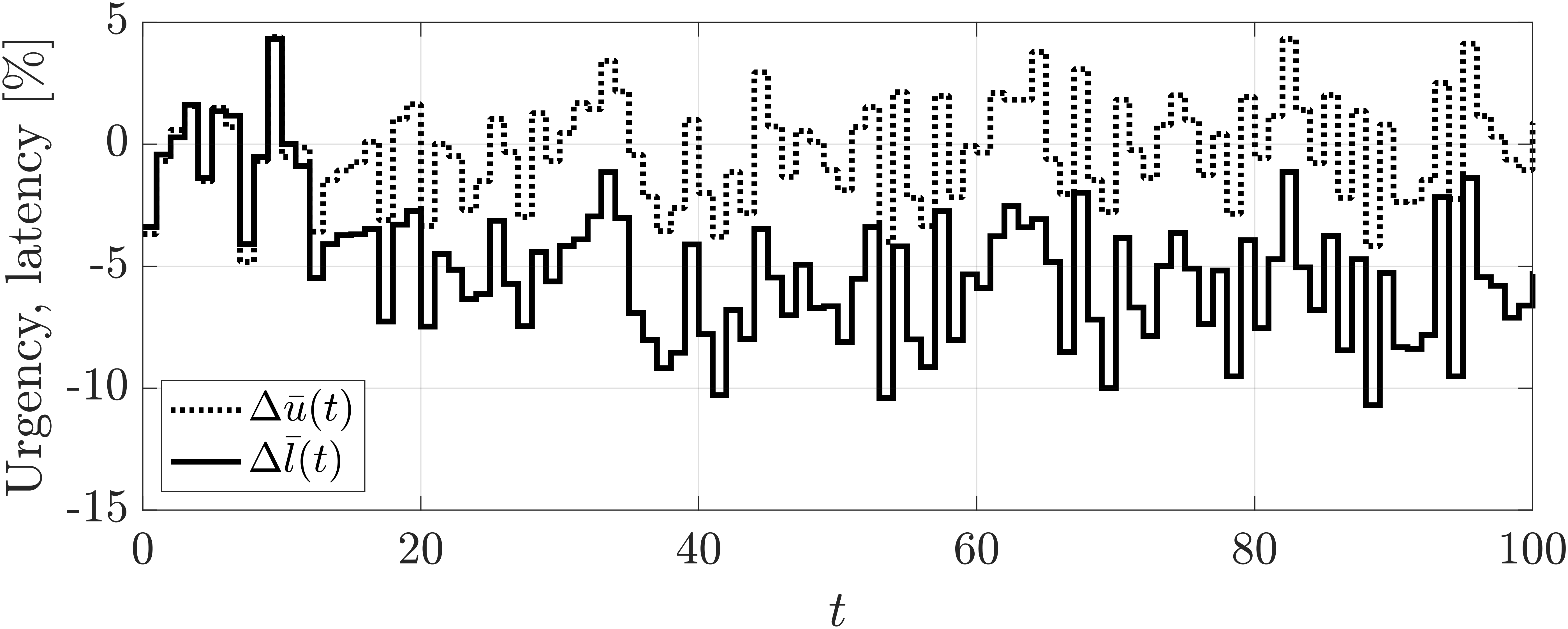


Conclusions
- The system’s optimum is achieved with the prices designed for equity and equality
- The perceived discomfort is significantly lower in comparison to a optimal but urgency-unaware policy
- Perfect equity can always be achieved
- Perfect equality may be not be possible to achieve
Citing
If you use this repository, please reference the publication below.
L. Pedroso, A. Agazzi, W.P.M.H. Heemels and M. Salazar, ‘Fair Artificial Currency Incentives in Repeated Weighted Congestion Games: Equity vs. Equality, arxiV preprint, 2024.
@article{PedrosoAgazziEtAl2024,
author = {Leonardo Pedroso and Andrea Agazzi and W. P. M. H. Heemels and Mauro Salazar},
title = {Fair Artificial Currency Incentives in Repeated Weighted Congestion Games: Equity vs. Equality},
journal = {arxiV preprint},
year = {2024},
doi = {}
}
References
[1] L. Pedroso, A. Agazzi, W.P.M.H. Heemels and M. Salazar, ‘Fair Artificial Currency Incentives in Repeated Weighted Congestion Games: Equity vs. Equality, arxiV preprint, 2024.